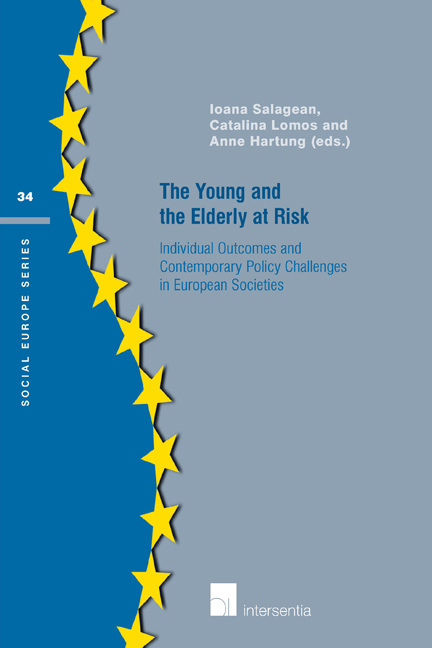
- Publisher:
- Intersentia
- Online publication date:
- December 2017
- Print publication year:
- 2015
- Online ISBN:
- 9781780685656
- Subjects:
- Socio-Legal Studies, Law
- Series:
- Social Europe Series

Dedicated to Professor Jos Berghman (1949-2014)The current retrenchment of the welfare states is buffering the growing demographic and economic pressures in European countries at the expense of the young and the elderly, and particular subgroups with intersecting high-risk characteristics. However, both investing in the young, which determines a society's future, and providing public support for the elderly, the most deserving needy group, are seen as musts. This book encompasses selective studies addressing policies and institutional settings, individual outcomes and attitudes towards governmental responsibilities. Focusing on the young in its first part, the present book reveals the contribution of ethnic and social capital to educational outcomes, and the role of national and European policies in the transition from school to work, the duration of unemployment and the minimum income dependency of Europe's youth. The second part of the book focuses on the elderly and discusses intersections with gender and ethnicity in old-age poverty, pension outcomes of mobile (cross-border) workers, the impact of the recent social security reforms and the possible outcomes of including financial assets and housing wealth in old-age income protection. The final chapters address the potential erosion of the solidarity towards the young and the elderly as a challenge for the European welfare states.'Empirical research, as it is presented in this book's contributions, can add much to our understanding of how this social contract, and by extension also others, like the social contracts between the active and inactive, the healthy and the sick, and the rich and the poor, can be sustained, economically, politically, as well as socially.Wim van Oorschot, Professor of Social Policy at KU Leuven and Honorary President of ESPAnet
 Loading metrics...
Loading metrics...
* Views captured on Cambridge Core between #date#. This data will be updated every 24 hours.
Usage data cannot currently be displayed.